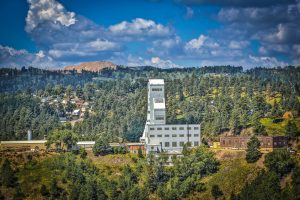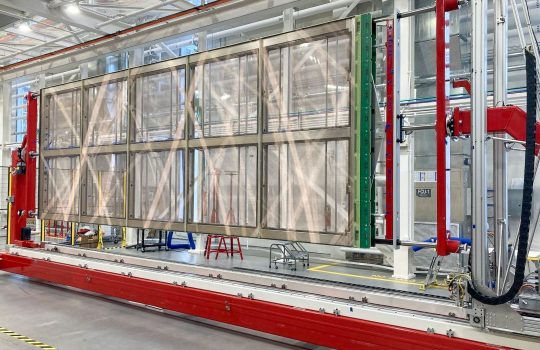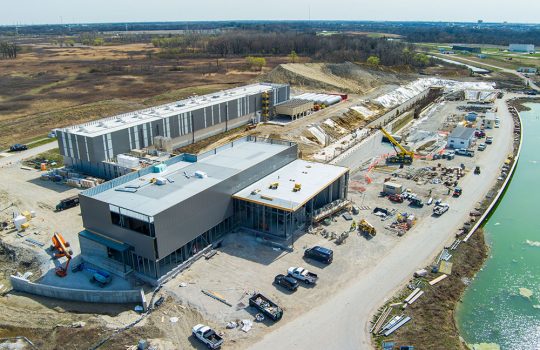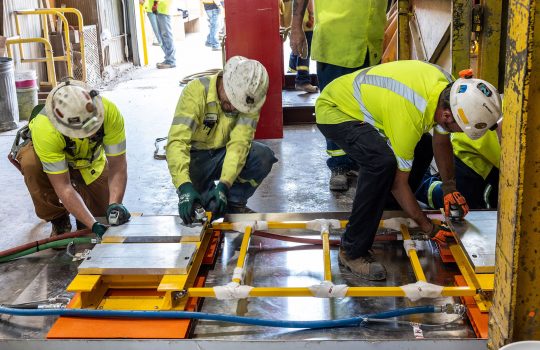
Along with Fermilab in Batavia, Illinois, Sanford Underground Research Facility in South Dakota is the site of the future Deep Underground Neutrino Experiment and its Long-Baseline Neutrino Facility. Pictured here is Ross Shaft. Photo: Sanford Underground Research Facility
The U.S. Department of Energy pursues discovery science that inspires and transforms our nation — research that can sometimes be pursued only in unique environments. The Sanford Underground Research Facility, owned and operated by the South Dakota Science and Technology Authority, or SDSTA, provides one such unique facility, with laboratories located 4,850 feet underground.
Because of the “deep” involvement of both Fermilab and Sanford Lab with the international Deep Underground Neutrino Experiment (DUNE), Fermilab has assumed a new role in the general services that support DOE science at the South Dakota facility.
Starting Oct. 1, Fermilab became the point of contact for the Department of Energy Office of Science at Sanford Lab. In this role, Fermilab is the liaison between DOE and SDSTA. This represents the first time Fermilab has acted in this role for a facility outside Illinois.
“We are excited about this transition as it brings our two organizations into closer partnership and strengthens the platform for some amazing DOE science,” said Tim Meyer, Fermilab chief operating officer.
The change demonstrates recognition by the Department of Energy of the major role Fermilab will play in future Sanford Lab operations. Previously, Lawrence Berkeley National Laboratory acted as the point of contact for DOE at Sanford Lab. Berkeley Lab continues its leading role in dark matter experiments at the South Dakota lab.
Fermilab and Sanford Lab are the sites of the future DUNE international particle physics experiment and the supporting Long-Baseline Neutrino Facility (LBNF).
Fermilab, located in Batavia, Illinois, will send a beam of particles called neutrinos 1,300 kilometers (800 miles) through Earth to Sanford Lab. There, enormous particle detectors, located nearly a mile underground, will receive the neutrinos and send the data to scientists.
Sanford Lab hosts multiple science experiments, of which DUNE is only one. The international Large Underground Xenon dark matter detector, known as LUX, has called Sanford Lab home. The Majorana Demonstrator neutrino experiment, run by a multinational team, is also conducted at Sanford Lab. The Department of Energy, the National Science Foundation and NASA all participate in the science experiments at the South Dakota lab.
As the largest new project being undertaken in particle physics anywhere in the world since the Large Hadron Collider, LBNF/DUNE will be the most ambitious undertaking at Sanford Lab.
“The SDSTA is proud to partner with Fermilab for the continued operations of the Sanford Lab,” said Mike Headley, executive director of SDSTA. “We’ve had a wonderful, productive relationship with Berkeley Lab, which was instrumental in creating the Sanford Lab — the deepest underground science facility in the United States.”



